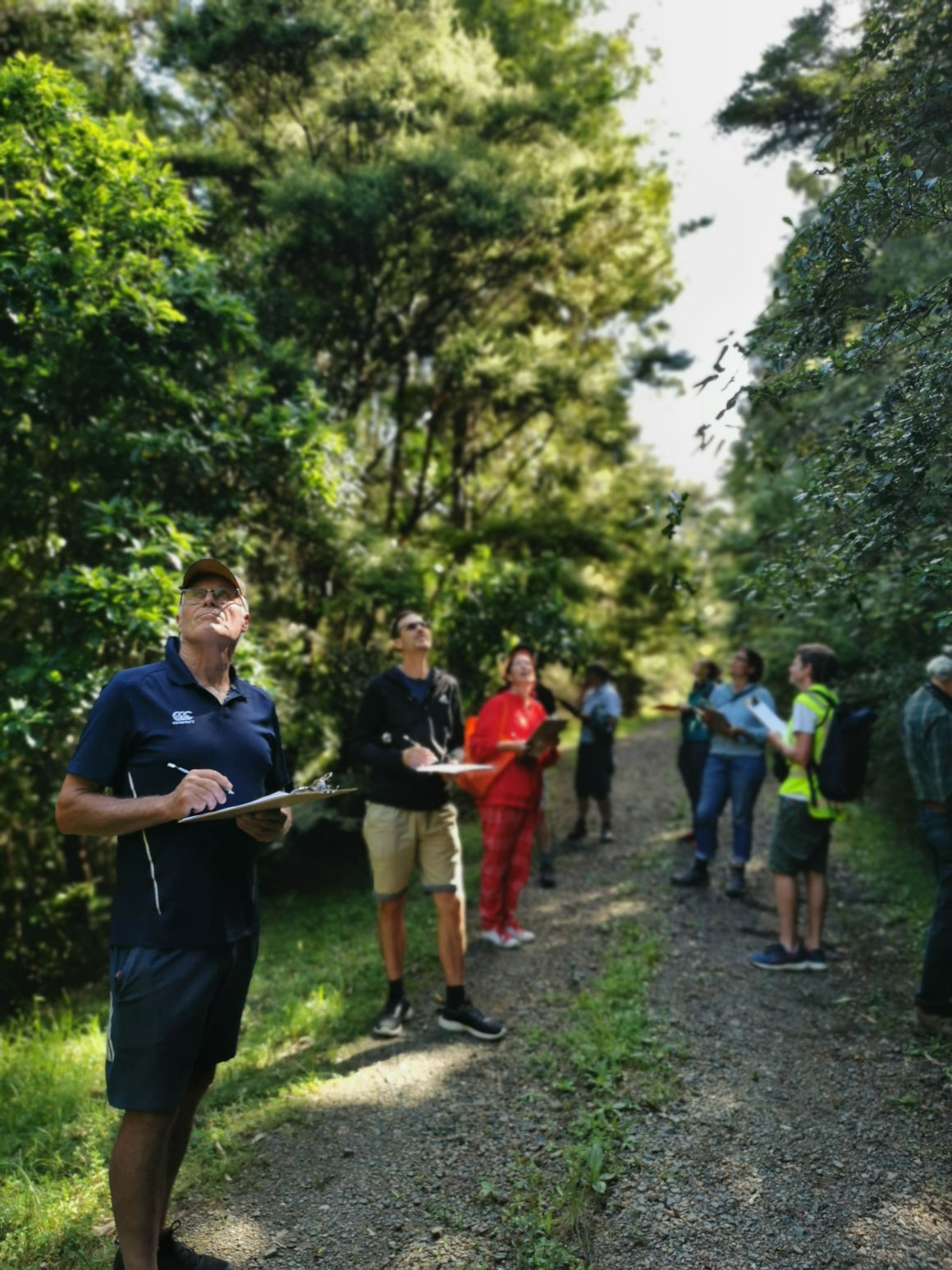5-MINUTE BIRD COUNTS
On November 13th 2022 a group of keen conservationists gathered to learn from Dr Dai Morgan from NRC about monitoring native bird species and density in the ranges. The work is important as over time this will provide evidence around the impact our groups’ pest control programmes are having, and what new species are returning to the area.
Since then, the group has noticed more species comfortably residing in the areas where rats, possums and mustelid are controlled.
Breeding kiwi are returning along other species such kaka, tomtit, bellbird, grey warbler, morepork, kereru, pīwakawaka, fernbird, and shining cuckoo.
With landowners joining the journey, and the 3 large DOC reserves in the ranges part of the intensive pest control programme, the group expects to see broader spread of native birds - given there is increased safe habitat to reside.
The team of 20 local volunteers will now monitor key bush sites to track and record a selection of key native species. Some of the volunteers will also be working with the local schools to train the students to assist and be involved as part of their conservation curriculum.
